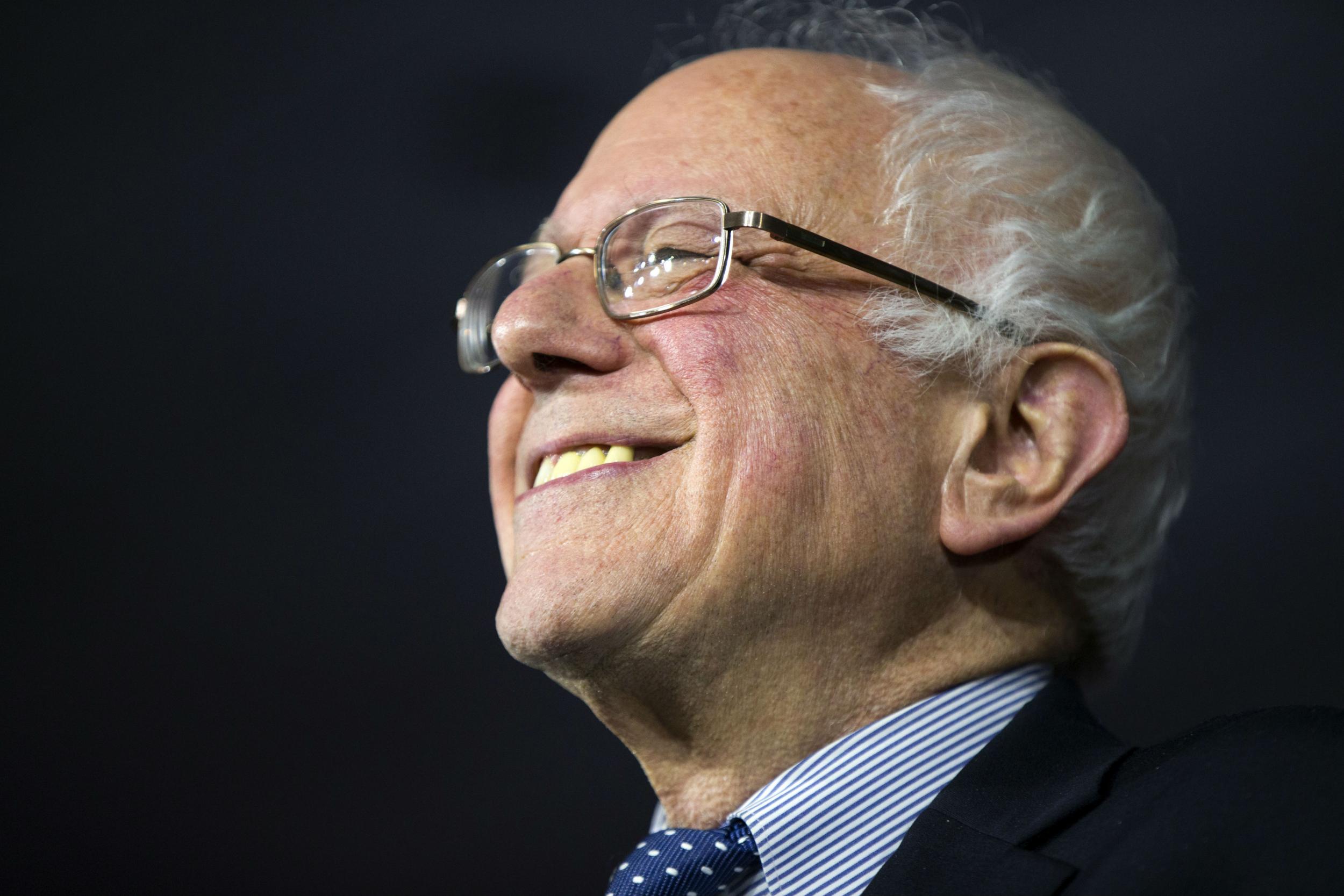Bernie Sanders 'moral victor' in Iowa with radical policies he promoted for 40 years
The Vermont senator has been a 'democratic socialist' since first entering politics in the 1970s

On Monday afternoon, Bernie Sanders was pacing in the lobby of his hotel, a cell phone pushed to his ear.
If Mr Sanders appeared a little anxious, his advisors appeared remarkably calm. Even though polls had suggested the Vermont senator was three points behind Hillary Clinton, his team were confident he could do even better.
At the heart of that belief, was the knowledge that Mr Sanders had not veered from his beliefs and had remained true. His supporters - and even those who disagreed with him - could see he was authentic.
A few hours later, Mr Sanders was celebrating a “virtual tie”, having pushed his campaign to within less than half a percentage point of Ms Clinton. While Ms Clinton’s campaign claimed victory and while she will secure at least 24 delegates compared to Mr Sanders’ 21 - some result are still not in - many will consider Mr Sanders and his insurgent, grass-roots effort to have been the moral victor.
“Iowa I thank you,” Mr Sanders declared, as he spoke to supporters at a hotel near Des Moines Airport.
“Nine months when ago I came to this beautiful state, we had no political organisation, we had no money, we had no name recognition and we were taking on the most powerful political organisation in the United State of America. Tonight, while the results are not fully in, we are in a virtual tie.”
Across Iowa, those who turned out to see Mr Sanders believed he on the side of the ordinary American and were impressed that he had turned down the chance to race money by means of an outside group, or super PAC.
Nick Mosher, 38, who was attending a caucus on Monday night in a high school gymnasium at Pleasantville, south of Des Moines, said he had voted for Barack Obama at the last two elections. Yet he was opting for Mr Sanders rather than Ms Clinton, who has sought to portray herself in many ways as continuing Mr Obama’s legacy.
“He did not take any money from super PACs. That is one of the reasons. He wants to get the money out of politics,” he said.
Last week, on a freezing night in Davenport, Dave Milne was typical of those lining up to see Mr Sanders at a rally at the Danceland Ballroom.
He said that growing inequality was devastating American working men and women and that someone needed to act. Ms Clinton would make a reasonable second choice, but Mr Sanders had earned his backing.
“I’m for the common man and we think Bernie is the right person for the way the country is right now,” he said.
Mr Sanders, who was a became a member of the Young People's Socialist League when he was a student at the University of Chicago and later contested for the anti-war, Liberty Union Party first won elected office in 1981 when he became the Mayor Burlington, Vermont.
What has been striking about the decades-long career of the self-described democratic socialist, is that his views have altered very little. One of his advisors admitted that Mr Sanders may be the most progressive candidate the Democratic party has ever had, even more so than Eugene McCarthy in 1968.
And all the while, even as he won seats to the US House of Representatives and the US Senate, people continued to question whether or not Mr Sanders and his “radical views” were electable.
“That’s always been the rap on Bernie. Everybody always says, ‘He can't win’,” his wife, Jane, a former college president, told CNN before the vote.
“He won the mayor’s race by ten points. If ten people had stayed home and bought the ‘He's not electable angle, we wouldn’t be here today. So every vote and every caucus member counts.”
Mr Sanders’ team said the senator was able to energise younger voters and many people who normally ignored politics, by focussing on issues such as growing inequality and social justice. At his events, he has stressed the need to secure equality for men and women, gays and straights, people of all colours.
This enabled him to finance his campaign by means of small donations from ordinary voters. End of year filings from the presidential candidates, as shown by Politico, revealed Mr Sanders raised 70 per cent of his funds from small-time donors.
Indeed, many of his supporters drew the contrast between his campaign and that of Ms Clinton, which raised millions of dollars from Wall Street and large corporations.
On Tuesday night, in what for all purposes was a victory speech, Mr Sanders said that his win had sent a message to the world.
“The American people know this country is based on fairness,” he said. “It’s not fair when the top tenth of the top one per cent own more than the bottom 90 per cent.”
If political pundits were surprised that Mr Sanders’ message has resonated so much with the voters of Iowa, he perhaps was not. He has been saying the same thing all his life.
Subscribe to Independent Premium to bookmark this article
Want to bookmark your favourite articles and stories to read or reference later? Start your Independent Premium subscription today.

Join our commenting forum
Join thought-provoking conversations, follow other Independent readers and see their replies